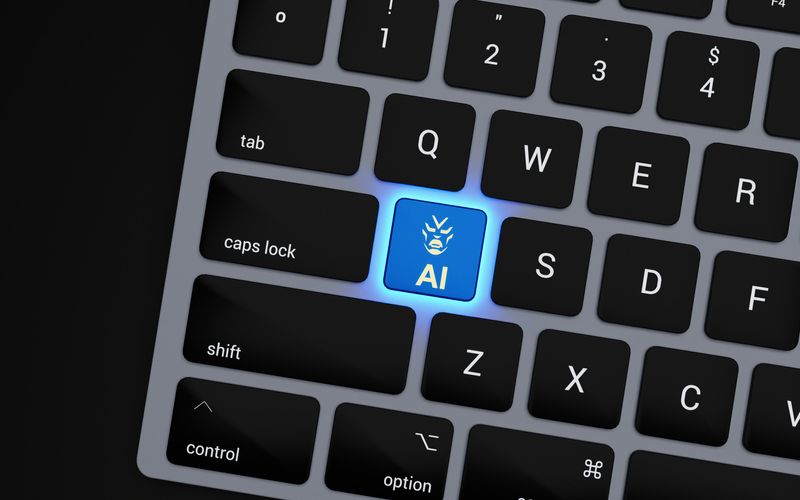In the fast-paced world of software development, where deadlines loom like a nosy neighbor and innovation is the flavor of every month, there’s a new kid on the block that everyone’s talking about: AI governance.
Now, before you roll your eyes and think, “Great, another buzzword,” let’s take a step back and consider this for a moment. AI governance isn’t just a trendy term to sprinkle into your next client pitch—it’s the delicate art of managing AI in a way that’s ethical, transparent, and, dare we say, responsible. Yes, we know, “responsible” sounds about as thrilling as watching paint dry, but hear us out.
The Allure of the AI Playground
AI is like that shiny new toy every software development firm wants to play with. It promises to make everything faster, smarter, and—if you believe the hype—practically self-sufficient. But just like handing a toddler the keys to your car, letting AI run wild without proper governance is asking for trouble.
Sure, you could build that recommendation engine or predictive model without a second thought, but what happens when things go sideways? The algorithm starts showing bias, the data it was trained on turns out to be flawed, or worse, it makes a decision that lands your client in hot water. Oops, didn’t see that coming? Yeah, neither did anyone else.
.png)
A Totally Foolproof Approach to AI Governance
Let’s face it, we’ve all been there—rushing to deliver on a tight deadline, cutting a corner here or there (just this once, we swear), and not giving AI governance the attention it deserves. But maybe, just maybe, it’s time we all took a deep breath and asked ourselves a few critical questions before diving headfirst into the AI deep end.
- What’s the Real Purpose of This AI?
Are you developing an AI solution because it genuinely adds value, or is it just because everyone else is doing it? If it’s the latter, it might be time to reevaluate your priorities. Not every problem needs an AI solution, and sometimes the simplest approach is the best one. Crazy, right?
- Is Your Data as Clean as You Think It Is?
Data is the lifeblood of AI, and if your data is a mess, your AI will be too. It’s tempting to feed your model whatever you can get your hands on, but garbage in equals garbage out. So maybe spend a little extra time on data governance before you unleash your AI masterpiece on the world.
- Have You Considered the Worst-Case Scenario?
We all want to believe our AI will perform flawlessly, but let’s be real—it won’t. Things will go wrong, and when they do, you’d better be prepared. That means thinking about the potential risks and having a plan in place to mitigate them. Because when your AI starts acting up, claiming “nobody could have predicted this” won’t win you any points with your clients.
- Transparency Isn’t Just a Buzzword
Being open about how your AI works and what data it’s using isn’t just a nice-to-have—it’s essential. Clients, regulators, and the public are becoming more aware (and rightly suspicious) of AI’s potential for misuse. So, be prepared to explain your model’s decisions and show your work. Remember high school math? Yeah, kind of like that.
- Ethics: The Elephant in the Room
We get it—“ethics” can feel like a buzzkill when you’re trying to innovate at lightning speed. But the truth is, if your AI is making decisions that affect real people, you’d better ensure it’s doing so fairly. No one wants to be the poster child for biased AI, and a little ethical consideration upfront can save you from a world of hurt later.

When in Doubt, Slow Down
We know it’s tempting to push AI out the door as quickly as possible—especially when there’s pressure to stay ahead of the competition. But maybe, just maybe, it’s worth slowing down and giving AI governance the attention it deserves. Because when it comes to AI, it’s not just about what you can do; it’s about what you should do.
So, the next time you find yourself in a rush to deploy that shiny new AI feature, take a moment to consider whether you’ve really done your due diligence. After all, in the world of software development, a little sarcasm never hurt anyone—but a lack of governance just might.
AI governance isn’t the boring, bureaucratic burden it’s often made out to be. It’s the necessary framework that ensures your innovations don’t become the next big headline—for all the wrong reasons. And hey, if that doesn’t motivate you, just imagine the joy of not having to explain to your client why their AI turned into a PR nightmare. Now that’s something to strive for.
.webp)






.webp)




.png)